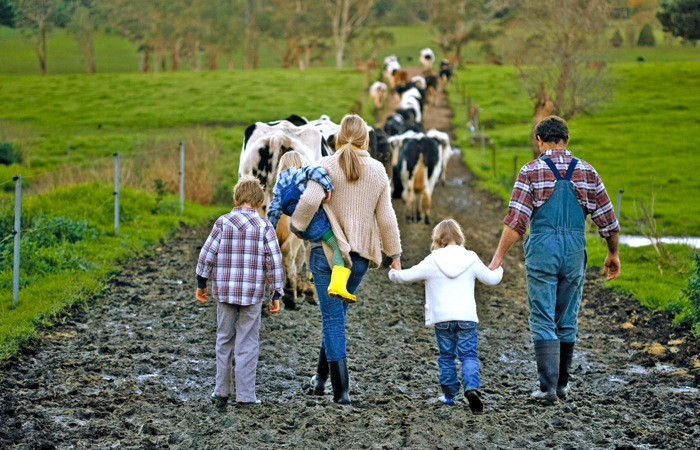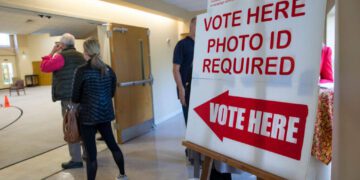By John F. Di Leo, American Thinker
The Food and Drug Administration has happily approved Upside Foods’s sale of lab-grown meat for human consumption, simultaneously announcing their openness to other companies with similar approaches to meat production.
Researchers have been working on cloning organs in the lab for years, allegedly always for honorable medical purposes. Now they want to take cells from biopsies of farm animals, and grow synthetic meat from them in a sterile laboratory, to sell for food.
There was a time when every biomolecular engineer had to take an ethics class. Perhaps they still do, but perhaps more students disregard such lessons nowadays, as so many disregard so many other important lessons of history and philosophy in the interest of modernity.
The scientist asks “Can we?” The philosopher asks “Should we?”
But in addition to these big questions, in this case, there’s a more fundamental one, which everyone should be asking.
“Why on earth would we want to?”
If America were running out of farmland, we might have a desperate need to find new ways to raise food. But we have so much available farmland, the government pays farmers not to plant. The world has plenty of hungry people, not because we can’t raise enough meat, but because we can’t transport it all to those who want it. So a shortage of productive land can’t be it.
If the animal stock we do raise is getting weaker, thinner, sparser every year, then, too, we might get desperate for new ideas. But our farms and ranches are more productive every year, with modern fertilizers, modern hybrids, modern agricultural equipment. So that can’t be it.
In fact, our technology is so impressive today, it literally scares people. The weaker and more gullible among us have grown afraid of our amazing hybrids, afraid of research and modernization. A country with people who pay double for “organic” food that eschews scientific advances, a country that shames producers into offering non-GMO products, cannot be a country so hungry that it must resort to xeroxing carbon copies of chickens rather than raising and eating real ones.
There are hints to the underlying reasons:
The Left has demonized animals for exhaling carbon dioxide, as we humans do. Since the climate cult decreed that carbon dioxide, of all things, is slowly jeopardizing our planet, there has been a peculiar trend toward public derision of very concept of animals. The more animals there are, the more exhaling. Can’t have that. It might cause another half inch of erosion in a couple of low-sea-level port towns over the next few centuries. So, we spread vegetarianism, even veganism, to discourage the eating of animals. And we have seen if anyone would bite.
But even that hasn’t caught on enough to explain this. One more reason surfaces:
For generations, the metro areas have flourished while the rural areas have bled. Even in a time of general population growth, America’s smaller towns have emptied to the point of becoming endangered, and not in the least by accident.
Obamacare reduced the healthcare availability in lower-population areas, even as climbing minimum wages priced other employment out of our less-populated areas. The assault on the automobile has had rural America in its sights; the switch from real cars with 400-mile ranges to battery-operated buggies that need to be plugged in overnight after 80 miles could hardly be promulgated in a nation that still valued the wide open spaces of agricultural America.
America was built on a combination of skills and careers, on a balance of city and country, mountain and shore. Today’s pop culture and ruling elites, however, have only disdain for the most fundamental elements of a functioning society, the farmers and ranchers who raise our cattle, hogs, chickens, lambs and turkeys on sprawling spreads far outside our city limits.
Perhaps it’s too wild, too natural, too old-fashioned for these modernists. They tried for decades to get us to eat burgers made of beans, and chicken wings made of processed leaves, but even the truest of their true believers couldn’t manage to choke down such synthetics.
So they’ve now moved on to Plan B: leaving the farm entirely for a cold laboratory, growing animal muscle in a tray without needing to grow the rest of the animal, in a safe, sterile, and hidden setting. They want to never again have to smell a farm, never again have to know that a slaughter took place. Their way of avoiding “eating anything with eyes” is now to eat animal meat that was never part of an animal at all. Their delicate feelings desire some way to eat muscle without anyone ever having to cut it off a bone.
Can this concept be sustainable? Probably not. Hopefully, it will fizzle, as did prior attempts to discourage mankind from eating meat. The human body is meant to be omnivorous, after all; any effort in opposition to this reality will always feel unnatural because it is.
But they try. They keep trying. For a reason.
Our farms and ranches are part of human tradition. Living off the land – raising animals for food and clothing – has always been part of the essential foundation of our economy. Our jammed cities cannot exist without that fruited plain – that panoply of agricultural/horticultural businesses, both small and large, that fill the mileage seen from the interstate and from the airplane window, in the broad gaps between our cities.
The family farm, the local butcher, the local farm co-op, the local meat-packing plant – and the feed companies, transportation and distribution networks that support them – these have always been the bedrock of the American experience, creating and developing countless opportunities for entrepreneurship.
Children in these family businesses join 4-H and the FFA; they raise a hog or steer to compete at state fairs for prizes or purses that fund their college educations.
It’s a completely different world than the experience of growing up in a big city, and there was a time when such diversity of experience was appreciated, but that time has passed. In today’s America, the only desirable diversity is a variety of skin color, language, and sexual orientation. All else must be uniform, from political opinion to social norms, or one risks being scorned, cancelled, shadowbanned.
Seen in this light, and only in this light, the encouragement of lab-grown meat makes sense. It’s an assault on rural America, an attack on the American farmer. It’s a science-fiction plot hatched in the real world without the slightest need.
And the FDA – like so much of today’s federal bureaucracy – has been weaponized in support of that countercultural effort.
America needs to Just Say No to lab-grown meat. They will market it as cleaner, safer, purer; they will claim that it’s more humane to never raise an animal at all than to raise one that will eventually be used to make steaks, belts, and coats. It’s an argument they have used before, for other political issues as well.
Like so many other issues they champion, there’s a lot more countercultural motivation here than meets the eye. The fact that lab-grown meat, in a nation blessed with unlimited natural farmland, is unnecessary is just the tip of the iceberg.
John F. Di Leo is a Chicagoland-based international transportation professional. A onetime Milwaukee County Republican Party Chairman, he has been writing a regular column for Illinois Review since 2009. His book on vote fraud (The Tales of Little Pavel) and his political satires on the current administration (Evening Soup with Basement Joe, Volumes I and II) are available on Amazon.
By John F. Di Leo, Opinion ContributorWe're hearing a lot of complaints about the tariffs, and I understand that, since we all hate taxes, as we should. Republicans...
Read moreDetails







